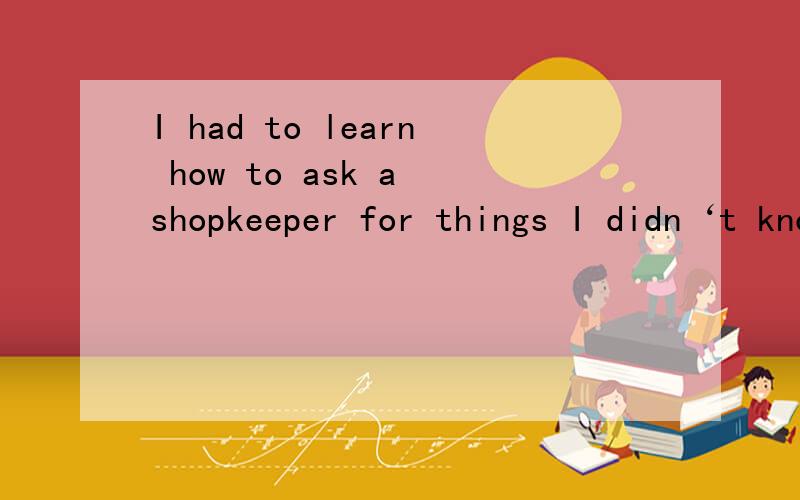I had to learn how to ask a shopkeeper for things I didn‘t know the English for为什么最后要加for
来源:学生作业帮助网 编辑:作业帮 时间:2024/11/28 04:03:01

I had to learn how to ask a shopkeeper for things I didn‘t know the English for为什么最后要加for
I had to learn how to ask a shopkeeper for things I didn‘t know the English for
为什么最后要加for
I had to learn how to ask a shopkeeper for things I didn‘t know the English for为什么最后要加for
参考:
1、know + 宾语
2、know + 宾语 + 宾语补足语
3、know + (that)从句
例:
1、I know Chinese.
我懂中文.
2、I know the English for Business.
我瞭解商务英语.
3、I knew he was a winner in London Olympics Games in 2012.
我知道他是一名2012年伦敦奥林匹克运动会上的冠军.
———
原句参考译文:
我不得不学习我不懂的有关如何向店主询问商品的英文?
—
若不加介词for,则变成我完全不懂英文(I didn't know English),而原句仅仅不会说有关购物的英语,所以需要加宾语补足语补充说明.又因为for後面的事物指的是前句提到的,所以可以省略介词for後的 "it ” ——即:how to ask a shopkeeper for things.
不过原句似乎有误,个人认为:
I had to learn how to ask a shopkeeper for things,which I didn‘t know the English for.
个人意见,仅供参考
第一个for是和ask搭配的,所以和english和things搭配还要再加一个for
因为是the English for the things I didn't know. 又如:
Do you know the English word for 白菜?